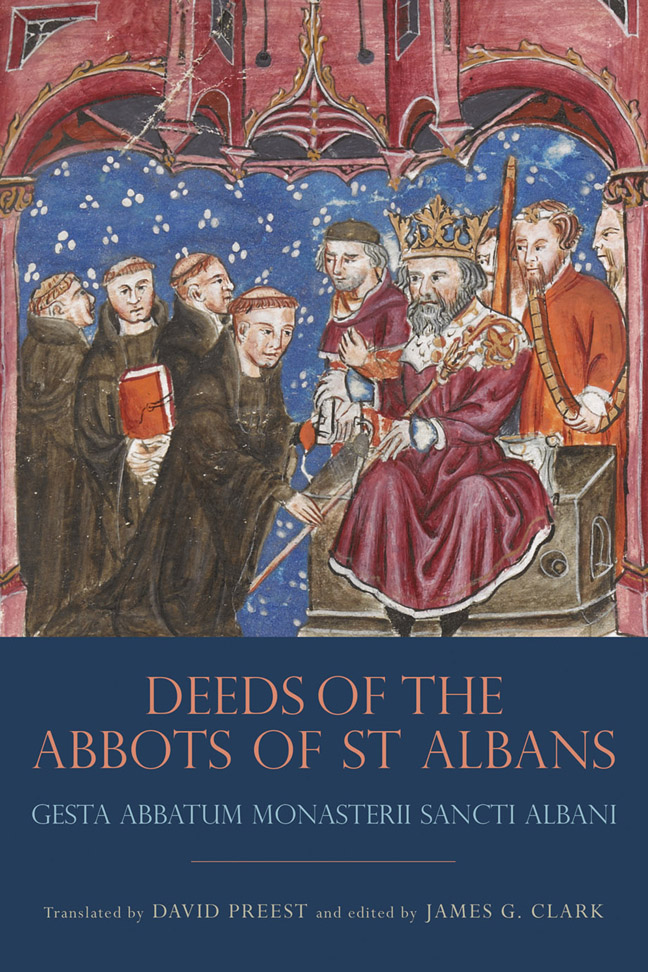Book contents
- Frontmatter
- Contents
- List of Illustrations
- Acknowledgements
- List of Abbreviations
- Introduction
- The Translation and its Sources
- The Deeds of the Abbots of St Albans
- Appendix A Thirteenth-Century Précis of the Deeds of the Abbots of St Albans: British Library, MS Cotton Vitellius a XX
- Bibliography
- Index
21 - John of the Cell
Published online by Cambridge University Press: 17 February 2024
- Frontmatter
- Contents
- List of Illustrations
- Acknowledgements
- List of Abbreviations
- Introduction
- The Translation and its Sources
- The Deeds of the Abbots of St Albans
- Appendix A Thirteenth-Century Précis of the Deeds of the Abbots of St Albans: British Library, MS Cotton Vitellius a XX
- Bibliography
- Index
Summary
Abbot John the 21st
John succeeded him. He had lived a secular life in the world and was known as Master John of the Cell. Born of a middling family not far from the village called Studham, he was a man of exceptional piety, a lover of order and strict monastic discipline. In his youth he had frequently attended the schools in Paris and had been judged worthy of joining the fellowship of those elected masters. So that when he reached manhood, he could be considered via Priscian in grammar, an Ovid in versifying and a Galen in physics.
Having taken the habit of a monk, day by day he advanced so much in goodness, that, proceeding from virtue to virtue, he was called to rule as prior of Wallingford, and finally, as his outstanding qualities demanded, he was happily elevated to the abbacy of the church of St Alban. Just like a scholar, he was ignorant of the real world, and, devoting himself to study, contemplation and continuous prayer, he chose Mary's best part and put Martha's worries second. So while, as was proper, always preserving a leader's authority, he handed over the guiding reins on internal, monastic matters to Master Reimund his prior, who was a deeply religious man of wisdom and good sense, and on external matters to Master Roger de Parco, his cellarer, who was a man of foresight and unhurried judgements. By thus sharing his burdens with others, Abbot John could more freely give himself to contemplation and prayer. So as befitted his position, he was more of a contemplative than a man of action, and he only weighed in the scales of reason and gave sensible decisions on difficult matters and ones which specially concerned him, for the most part relying on the advice of his two brother monks and supported by their aid. But, as I have said, he had received from his predecessor Abbot Warin the hundred marks which had been earmarked and set aside for work on the church, and, conscience-struck about this, he knocked down to the ground the west front of our church, which had been solidly made of old [Roman] wall-tiles and the firmest cement.
- Type
- Chapter
- Information
- The Deeds of the Abbots of St Albans<i>Gesta Abbatum Monasterii Sancti Albani</i>, pp. 334 - 373Publisher: Boydell & BrewerPrint publication year: 2019

